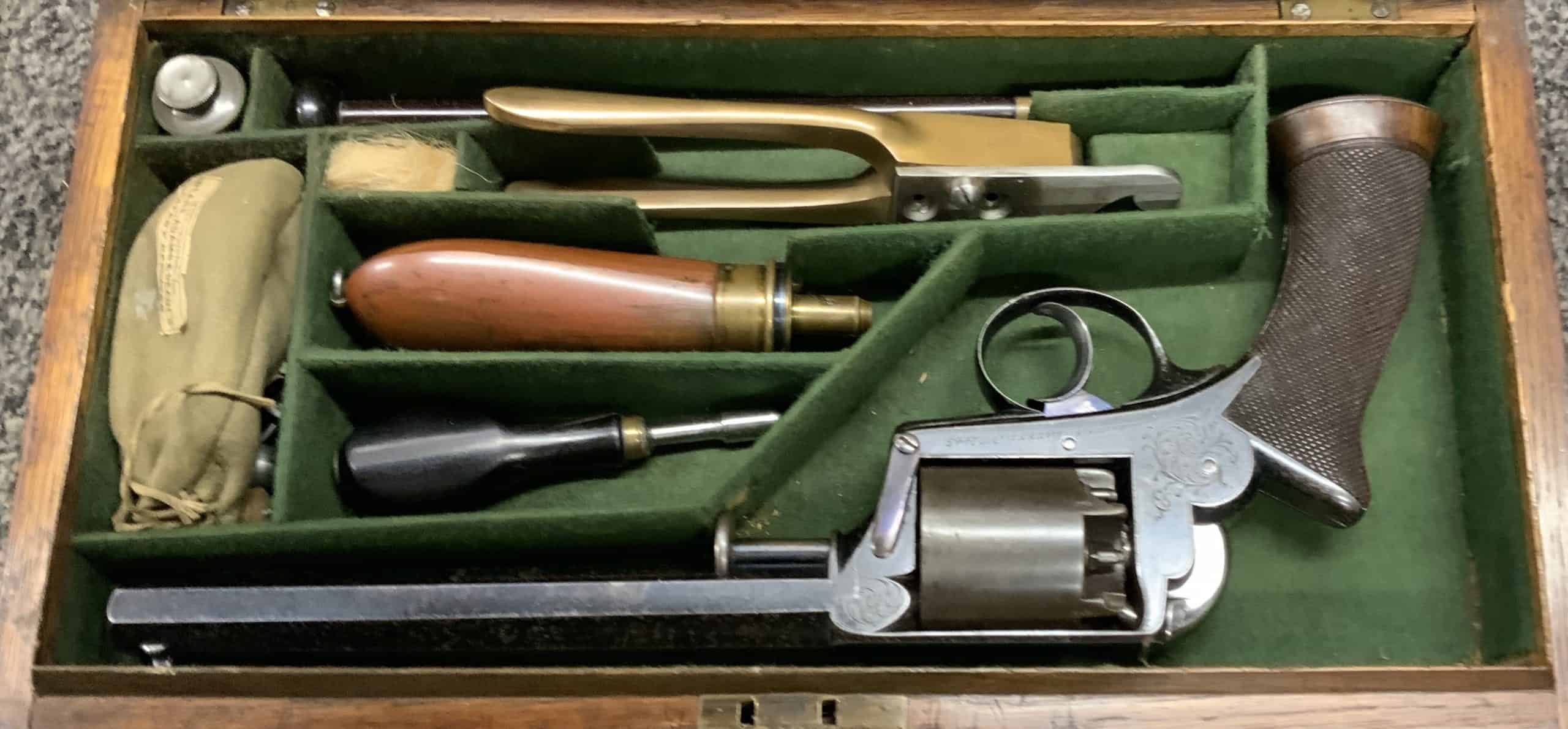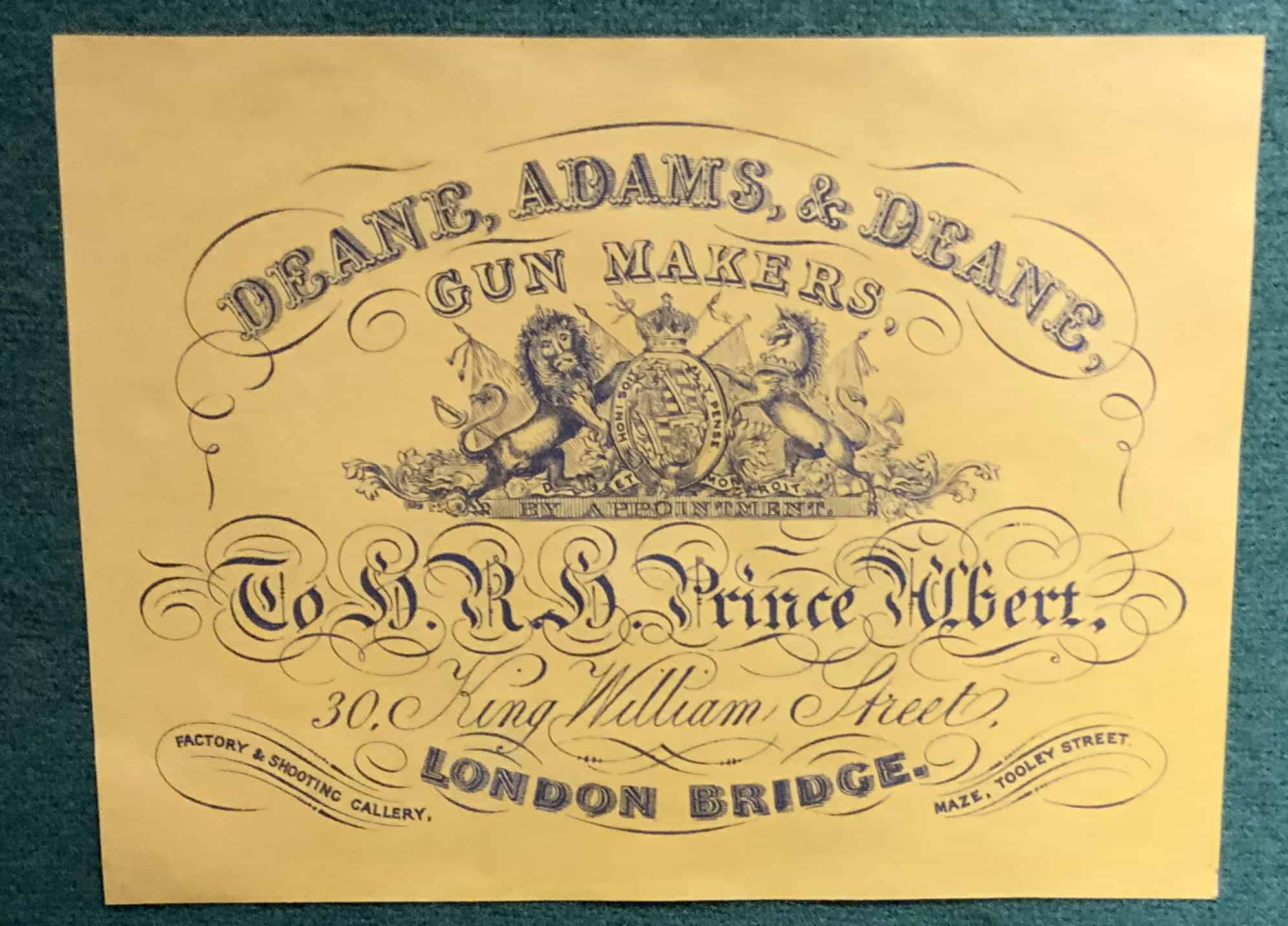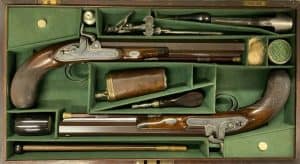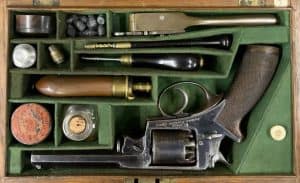Description
Cased 38-Bore Adams Revolver
Cased 38-Bore Adams Revolver. A rare cased Adams 38-bore revolver with all accessories. For further information please call.
Deane and Adams
Adams was the manager for the London arms manufacturers George & John Deane. On August 22, 1851, he was granted a British patent for a new revolver design.
The .436 Deane and Adams was a five-shot percussion (cap-and-ball) revolver with a spurless hammer, and the first revolver with a solid frame. The revolver used a double-action only system in which the external hammer could not be cocked by thumbing it back, like most other pistols of the era, but instead cocked itself when the trigger was pulled. This made it possible to fire the gun much more rapidly than contemporary single-action revolvers, such as the Colt, which had to be cocked before each shot.
Deane and Adams’ revolver was shown at the Great Exhibition of 1851 and subsequently approved by the British Army’s Small Arms Committee in addition to being adopted by the East India Company for use by their cavalry. Orders for the revolver were great enough to prompt the Deane brothers to make Adams a partner in their firm, which became Messrs. Deane, Adams, and Deane.
Although highly regarded, the hand-crafted Adams revolver was more expensive than Colt’s mass-produced guns. It lacked a recoil shield behind the cylinder, which left the shooter’s hand subject to powder burns resulting from “blowback” caused by the sometimes unpredictable black powder of the era. The lack of a hammer spur was criticized since the longer trigger pull of the Adams made it less accurate than the Colt. Furthermore, the Adams’ nipples, upon which the percussion caps were set, were unhardened and sometimes burst upon firing.
An “Improved Frame” model was offered in 1854, presenting both a sleeker look and more comfortable grip. In that same year the British Board of Ordnance reviewed the Adams together with other percussion revolvers with a view to adopting one as an official service sidearm. Concerns about the gas escape between the cylinder and barrel during discharge resulted in no decision being made. Nevertheless, British officers purchased the Adams privately and the gun proved its worth in battle during the Crimean War.
Click here for more Antique Arms





